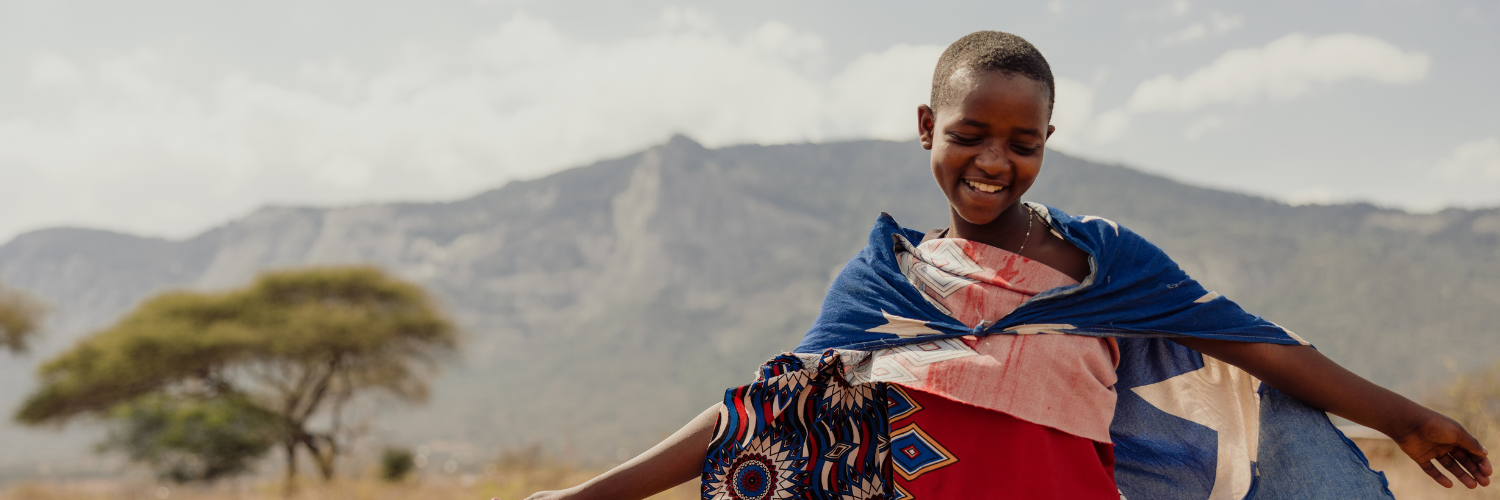In the dry, thorny plains of Naberera, Tanzania, where baobab trees stretch toward the sky and families walk hours for water, twelve-year-old Sarah stood at a crossroads. Her future, like the cracked earth beneath her feet, seemed predetermined—marriage, motherhood, and silence.
But Sarah had other plans.
She wanted to go to school.
“I felt hopeless. I was crying most of the time and I said, ‘I need to be educated as well, like my brothers. Do not deny me. Do not deny my rights.’”
Sarah lives in a crowded household with five siblings, her elderly grandparents, and her parents—Anna and Issaya. Her mother, Anna, is the only breadwinner, selling snacks at a small stall in town. Her father, now 70, is too old to work. Feeding everyone is a daily struggle.
When Sarah was old enough to start school, Anna said no. Sarah was needed at home to care for her younger siblings while Anna worked. Sarah accepted it—until her younger brothers were sent to school and she was still told to stay home.
At ten years old, Sarah made a bold decision. She walked to the home of Hashim, a village leader and family friend, and told him what her parents had refused to hear.
Hashim listened. He met with the ward executive and summoned Sarah’s parents. Her father had wanted her to marry young, to bring in a dowry. But Hashim had a different vision. Sarah was enrolled in school. She moved into Hashim’s home and began her studies. Within a year, Sarah was top of her class. Her teachers promoted her straight to grade four.
Anna’s story is one of quiet endurance. She was married off by her father to a man she didn’t know. Her voice was never part of the decision. When food runs out, Anna turns to neighbors for help. Sometimes she gets a cup of flour. Sometimes, nothing. Despite her hardships, Anna now sees the value of education—especially after witnessing Sarah’s determination.
Sarah has returned home from Hashim’s house. She helps her mother after school—cooking, washing, and caring for her siblings. But her dream remains clear. She knows what’s at stake. In her community, girls are often married off young. Education is not seen as necessary. But Sarah is determined to change that.
“I wish I succeed in my studies and be able to help my parents. If I get my income, I might be a teacher or become a scout officer or ward executive.”
In October 2023, World Vision began child sponsorship in Naberera. The programme is still young, but already making strides:
- Nine savings groups have been formed to help families manage money and support children.
- Training in sustainable agriculture and income diversification is underway.
- Nutrition counselling groups and school feeding programmes are planned to improve child health.
- Community Health Workers and case workers will monitor and support vulnerable children.
- Empowered World View trainings will help families identify local resources and build resilience.
Right now, 100 girls like Sarah are denied an education and forced into marriage as children, just because they are girls. Will you stand with them?
With your monthly sponsorship gift, you can help a girl and her community build a future where every child lives free from fear.
